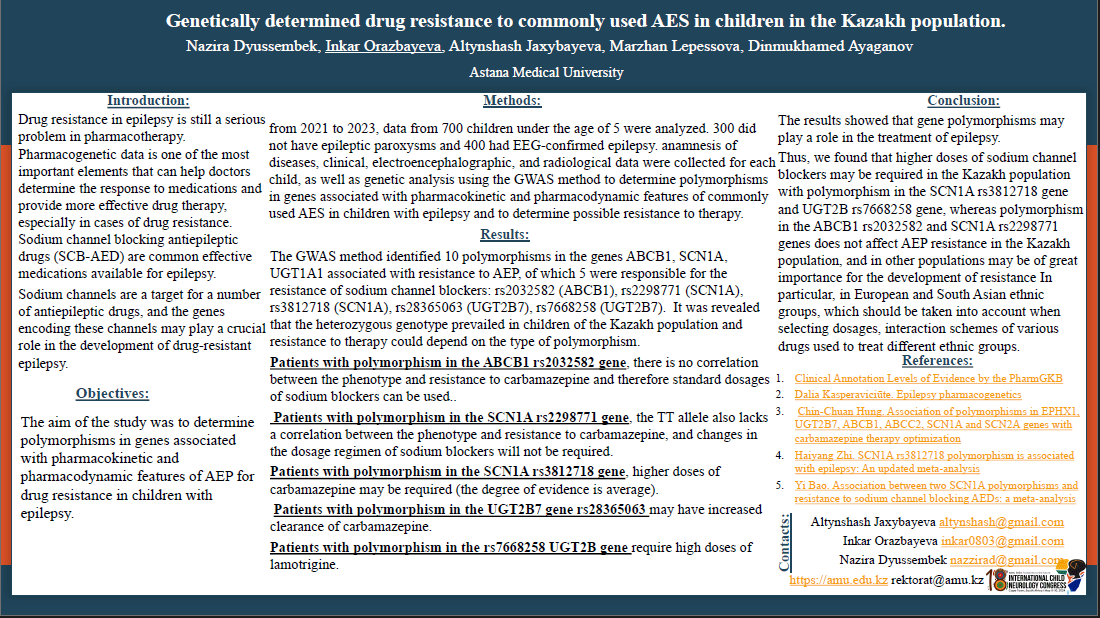Drug Resistance To Commonly Used AEDs In Children In The Kazakh Population.
Methods: A research was conducted among kazakh children, involving 700 patients, with 400 individuals in the control group and 300 individuals in the research group. The children were selected from different regions of Kazakhstan and were under the age of 5. Medical history was collected for each child, and a genetic analysis using the GWAS method was performed to determine their resistance to antiepileptic drugs (AEDs). The purpose of the research was to determine the drug resistance to commonly used AEDs in children in the Kazakh population. Result: Several polymorphisms in the genes ABCB1, SCN1A, CYP2C9, UGT1A1 associated with AED resistance were identified using the GWAS method. In the Kazakh population, as the heterozygous genotype predominates, the choice of medication depends on the type of polymorphism. Patients with a polymorphism in the ABCB1 gene can be expected to have drug resistance to most AEDs. Patients with a polymorphism in the SCN1A gene may exhibit a good response to carbamazepine. Patients with polymorphisms in the CYP2C9 and CYP2C19 genes are expected to have reduced drug resistance to most AEDs. Patients with a polymorphism in the UGT2B gene require higher doses of carbamazepine and lamotrigine and exhibit increased concentrations of valproic acid.
Nazira Duisenbek
Astana Medical University
Kazakhstan
Inkar Orazbayeva
Astana Medical University
Kazakhstan
Altynshash Jaxybayeva
Astana Medical University
Kazakhstan
Marzhan Lepessova
Kazakh-Russian Medical University
Kazakhstan
Dinmukhamed Ayaganov
West Kazakhstan Medical University
Kazakhstan
